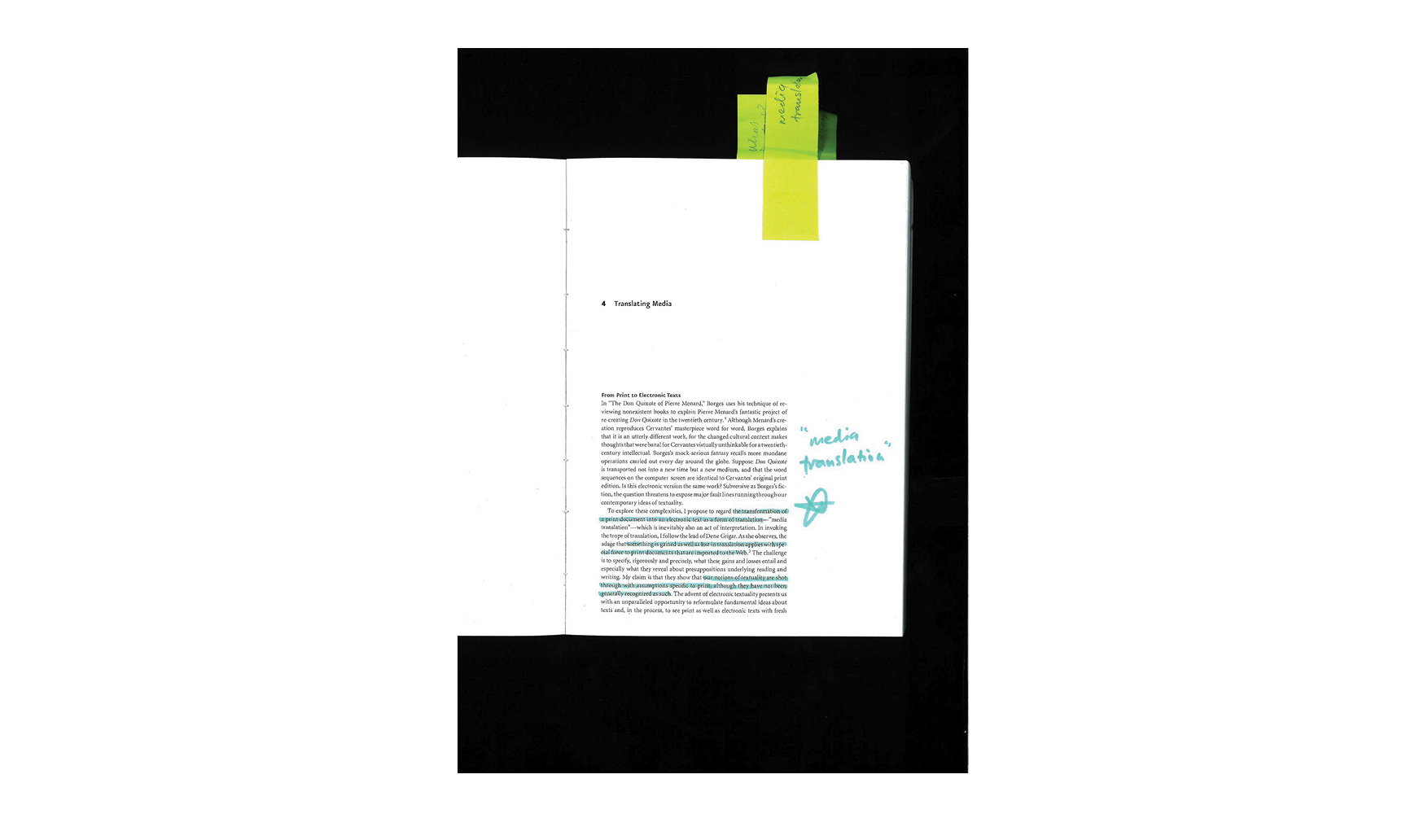being kind to the reader

see also bootlegging, cleaning up text, diversifying through use, multiplying form, republishing
While bootlegging makes a fairly faithful reproduction of a source publication, the degree of transformation is sometimes due to unintentional or uncontrollable factors, such as availability of the equipment and materials needed to make a close copy. At other times, more deliberate choices can be made concerning the transformed materiality of the bootleg.
Economy, efficiency, and readability are the main concerns when bootlegging texts for the library. Economy often dictates that materials that are at hand are used – in the case of printed books for example, this often means defaulting to certain choices with paper, printing methods and binding. An efficient workflow is not too time-consuming. Although the most important thing is to have the text by any means necessary, we read best what we read most, and certain typographic concerns may become vital to the readability of the text.
Being kind to the reader can involve adhering to typesetting conventions – including headers, footers and page numbers – should the book be photocopied and pages subsequently separated from the others. Most importantly, a reasonable line length and wide margins will allow the book to be made in a way that ensures a comfortable reading experience and provides space for annotation.
Image: A bootleg copy of My Mother Was a Computer by N. Katherine Hayles. The source PDF has been reimposed into a booklet, with reasonable line length (60-80 characters) and ample space for annotations
